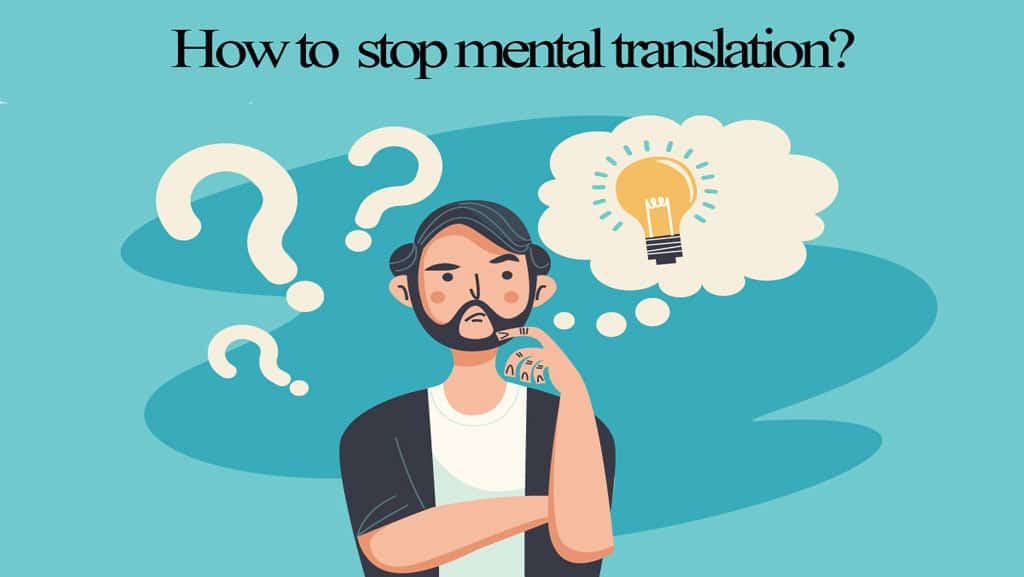Ways to Prevent Mental English Translation
How to prevent mental translation of English? Is there a way to stop mental translation? This dilemma is one of the issues faced by English language learners at the beginning. While this is useful at the beginning of learning, it continues to cause problems for those who are trying to raise their level of competence and impede the actual development of the language proficiency level. Here’s an article titled “How Not to Think in Farsi ?!” and we recommend reading it.
Techniques to stop translation
In the standard way of learning vocabulary we usually write or consider the Persian word and then find the English equivalent and try to keep it. This method is based on the same mental translation, so if you want to avoid mental translation you should change this way of learning English and use another appropriate one.
Here are some alternatives:
A: Learn the meaning of words through the picture
In this way, you can imagine your own image and its associated image in order to maintain and learn the English equivalent of a word rather than its Persian equivalent. For example, to learn the phrase “I love you” instead of “I love you”, consider the person you love and evoke the feeling of being loved. Or, when you want to learn the word “book,” consider the picture of a book.
With this method, over time you will no longer imagine using the English words to translate the word into your mind automatically stop mental translation, but using the sense, image and mental connection you have already established, to form words You will learn organic.
B: Tell us all about your daily routine in English
This way you engage yourself with English words all day and night. You do not have to know the meanings of all words from the beginning and say the sentences in the correct structure. Rather, you want to practice more to take control of your mind and force it to stop using mental translation only to use English words. For example, even say the sentence “I want water ” in English.
Convince yourself that you are allowed to use certain words incorrectly. This makes you anxious to speak English from the beginning, and with constant practice you will see that English words will be spoken automatically during the conversation.
A: Using English labels
If you really want to master English, you have to endure some hardships. The mind looks for the simplest ways but does not recognize it correctly. We have to endure some hardships if you really want to master English. The mind looks for the simplest ways but does not recognize it correctly. Therefore, he prefers not learning English and learning to use English vocabulary instead of mental translation. It is up to you to prevent mind autonomy. From controlling negative thoughts to engaging with the English language. In this way, we recommend that you make English etiquette for all your amenities, objects, and even verbs and install them in front of your eyes. Using this method you have to think even if you want to say it in Persian, that is, your vocabulary will change to English.
D: Watching English-language movies or listening to English music
This method has more of a reinforcement aspect, which means you can get the job you started at a higher rate. The effect of this method when you stop mental translation is to increase the durability of English words in the mind by using music or images and film, and when you encounter similar scenes, first put the sentences and phrases of that film in mind. And you no longer need equilibrium.
The abstract of article:
Keep in mind that you must keep on using the methods outlined above. Cross-sectional use of these methods will not give you the desired result. We also recommend reading the article “Memory Boosting Techniques for Learning English” to learn better and faster. You can read the English article published on this page.
What we said in this article:
1- We mentioned the disadvantages of mental translation.
2- We propose four techniques to stop mental translation.
For further studies:
1- Learn phrases instead of English words
2- How long does it take to learn a new language e.g. English?


 فارسی
فارسی